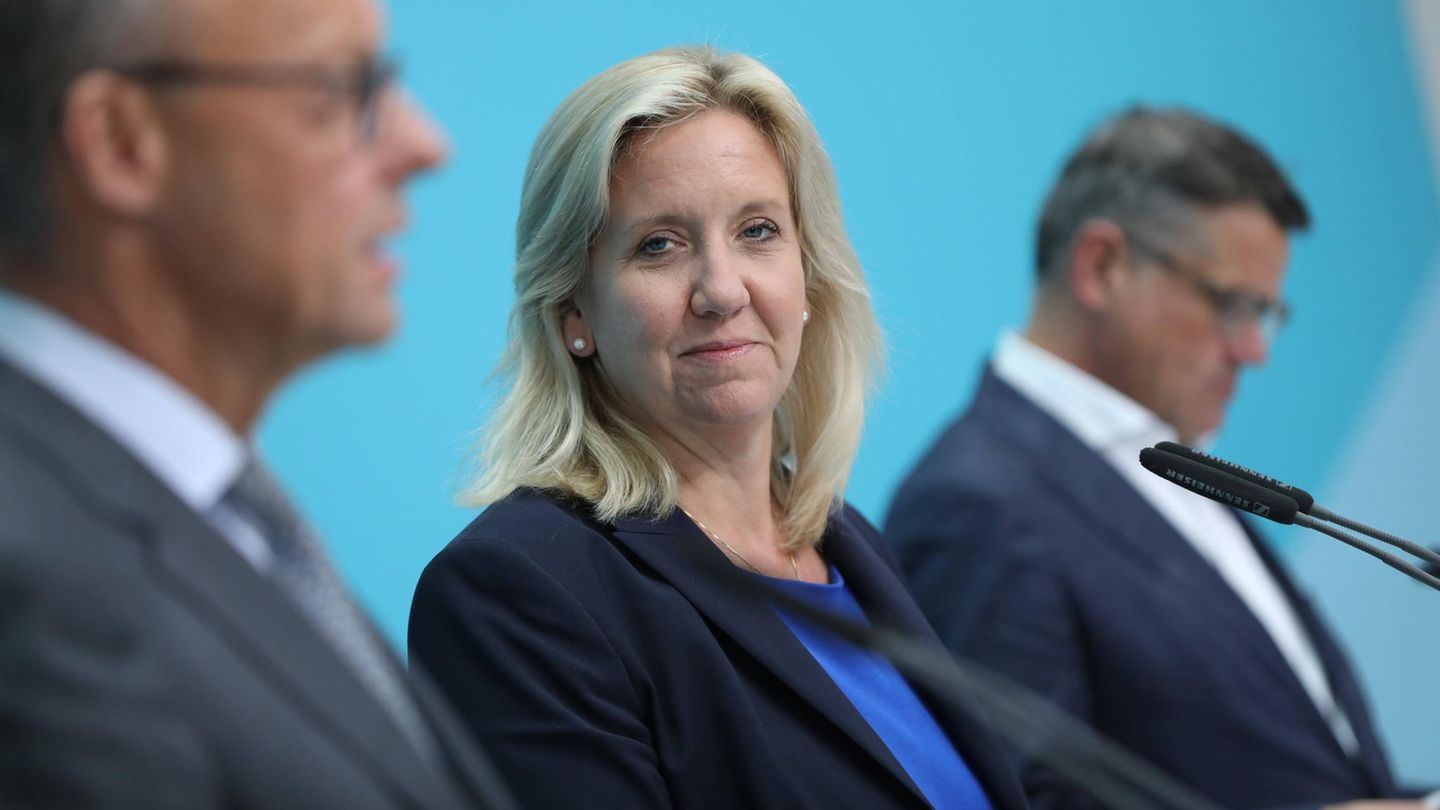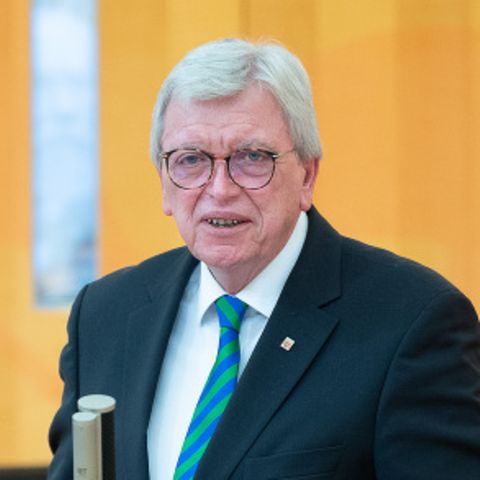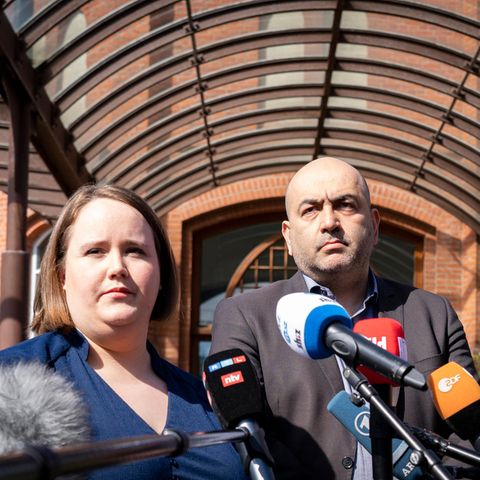Secret weapon Ines Claus?
This woman could still play a key role for Friedrich Merz
Copy the current link
Friedrich Merz has a problem with women: he has enough men as possible ministers. For women it gets quieter. There is still someone waiting in the background for her big chance.
Public proposals for ministerial positions in the next government are of course prohibited. Especially for the Union, which leads the polls by a wide margin. Just no megalomania. After all, there are still 70 days until the federal election.
When ex-Health Minister Jens Spahn recently publicly put himself forward for his next ministerial office, the CDU/CSU frowned heavily. Spahn himself now sees this as a mistake.
Who wants? Who can? Who is allowed?
Internally, however, people have been talking for a long time: Who wants to? Who can? Who is allowed?
Spahn and General Secretary Carsten Linnemann are often mentioned, as is Thorsten Frei, the parliamentary secretary. For women, however, things are quieter. Nobody appears as set. Almost all important positions in the CDU are held by men.
The names of Karin Prien, Education Minister in Schleswig-Holstein, and former Agriculture Minister Julia Klöckner, and perhaps parliamentary group deputy Silvia Breher from Lower Saxony, are mentioned. But otherwise…?
A new name for Friedrich Merz’s cabinet
Another woman seems to have played her way into the power cosmos of the candidate for chancellor, unnoticed by the public: Ines Claus from Hesse. Your name is now mentioned in many internal conversations when it comes to places in the cabinet of a possible Chancellor Friedrich Merz. Is the state politician from Wiesbaden on the way to Berlin?
The 1.83 meter tall 47-year-old has been the only female parliamentary group leader of the CDU/CSU in Germany for years; even in the federal states only men hold these positions.
We hear that Merz thinks highly of Claus: Catholic, conservative, down-to-earth. In his environment she is described as competent and present. Otherwise you don’t want to comment on personal details. A classic shadow cabinet does not yet exist – and, as they say, there will not be.
Claus was already considered a possible successor to Volker Bouffier
Claus, a lawyer, was born in Wiesbaden and has been parliamentary group leader in Hesse since 2020. The mother of three children was already considered a possible successor to Volker Bouffier. But today’s Prime Minister Boris Rhein prevailed. Claus remained parliamentary group leader, which meant more independence for her than in cabinet discipline.
The CDU politician has also been on the federal executive committee of her party since 2022, which is why she already travels to Berlin once a week. In the spring she even wanted to become deputy boss, but in the end she withdrew, also to spare the Union personnel debates. The leadership was relieved.
Some in the party believe that this increased her credit with Merz again because she put herself into the service of the party. As a ministerial official, she knows the inner workings of the administration. As a lawyer, she can be used in a variety of ways, such as family minister, or even for the interior department.
Hessin could be a counterpart to North Rhine-Westphalia
What also speaks for Claus: There is a risk of a surplus of representatives from the powerful North Rhine-Westphalia state association in the government. Spahn, Linnemann and Merz himself come from there.
For the large regional association of Hesse, Claus, together with Prime Minister Rhine, could form a counterbalance by going into government. There are no other candidates from Hesse in sight. Unless Merz reactivates ex-Prime Minister Roland Koch. He’s been out of politics for a while, but he’s three years younger than Merz himself – and a close confidant of the candidate for chancellor.
In the shadow of Nancy Faeser
The example of Nancy Faeser speaks against Claus. Olaf Scholz brought the SPD politician in 2021 as head of the interior department, also from state politics, also from Hesse. Faeser often seemed overwhelmed, especially at the beginning, and was seen as a mistake in the SPD.
Since then, Faeser has consistently been one of the most unpopular politicians in the country and, as the SPD’s top candidate in Hesse, suffered a historic electoral defeat. Some in the Union see it as a warning example.
Ultimately, for Claus, a lot will depend on the election results, the color of the coalition and of course the distribution of ministries. And this also depends on which positions the sister party CSU would like to take on: In Bavaria, two women, Dorothee Bär and Andrea Lindholz, have a chance of becoming a minister.
Nothing is certain, and there are certainly no guarantees. But Ines Claus will be thinking about it these days. Would Prime Minister Rhein let her move to Berlin? How does the job fit in with a family with three smaller children? Can she really do better than Nancy Faeser at the federal level?
In the end, that much is clear, if the Union wins the election, one person in particular will decide: Friedrich Merz.
Source: Stern
I have been working in the news industry for over 6 years, first as a reporter and now as an editor. I have covered politics extensively, and my work has appeared in major newspapers and online news outlets around the world. In addition to my writing, I also contribute regularly to 24 Hours World.






